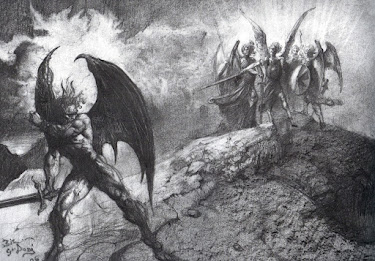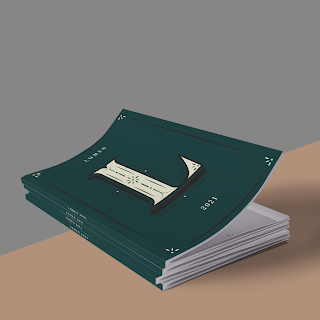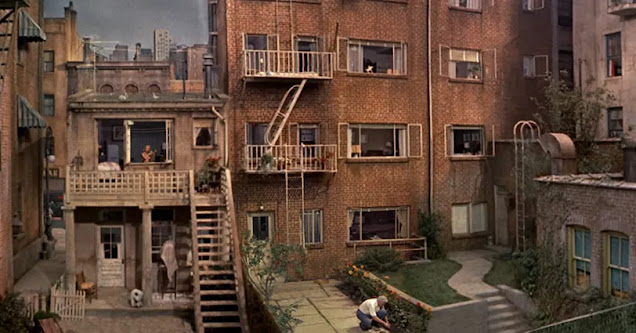The Hound of the Presentation
Presenting: an established favorite of mine on this blog. Don't worry, I'm not about to detail another internal crisis; rather, I'd like to discuss the poem I researched— "When I consider how my light is spent" —and the poet himself: John Milton. I find him to be an incredibly tragic man. He lost his eyesight, fearing for the future of his passion, his talent, his life, to an issue that (should he have been born in another time), would have been treatable. The poem sparked personal fear within me as well, for although I am not religious, I do fear what would become of me should I not engage in my passions. His lament over his newfound restrictions is incredibly sympathetic to me, for I too would rile at the idea of being unable to write again. Words may not always flow from my hands, and my mind oftentimes struggles to put thought to paper, but when it is there, I'm in Heaven. There's nothing more satisfying than conveying yourself through a medium, especially when an audience (no matter the size) is receptive to it. Luckily, Milton was not destined to never write again; in fact, "Paradise Lost," his most famous work, was published long after he had fully gone blind.
With his continued writing, it brings up an interesting discussion: did Milton truly believe the content of his poem "When I consider how my light is spent," or was he merely trying to reassure himself in the immediate aftermath of his blindness? I propose the latter, for although the sentiment of his message is an assurance, passion does not extinguish. Milton adored poetry, and he would not have wanted to give the talent up. Finding a way to pursue it, by whatever means necessary, would have been imperative to him. His poem is simply a way for him to justify his validity to himself, relying on his faith to do so. Oftentimes, one will mean something they say with regards to others, but they fail to apply it to themselves. That also could be the case with Milton, for it appears that he believes in one's value as a human being, but fails to see the intrinsic value in himself, instead relying on his writing to validate his existence and place in the world under God.
As I stated earlier, I'm not religious, so Milton's reassurance through religion is difficult to fully grasp, but I can certainly understand the desperate need he had to substantiate his own existence after the "loss" of his life's drive.
Admittedly, when choosing a poem to present on, I was being realistic with myself, recognizing the need for time in between the due date for the literary essay and the presentation itself. After deciding on a day, I then pursued the titles, as there were no authors attached. Cognizant of Shakespeare's titles, I strayed away from them, wanting to experience something new. Milton's title caught my attention, which is why I chose it. I'm glad I did, for I'm always looking to understand religious pieces better, and I also got to learn about the poet himself, who was a fascinating man. I have only read snippets of Paradise Lost, so maybe one day, I shall find the courage and resolve to read the epic poem in its entirety.





Comments
Post a Comment